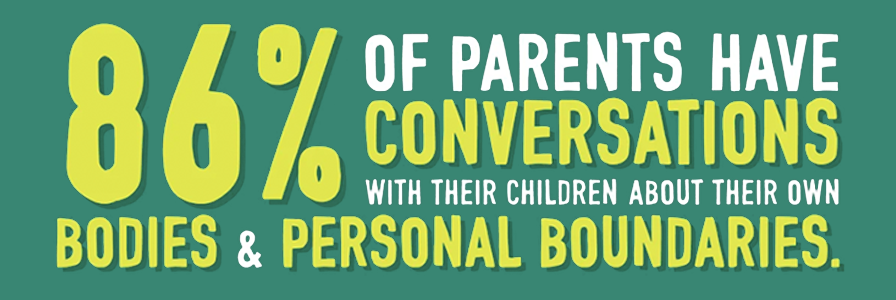
Data from the 2020 CTF Positive Community Norms survey of 1000 randomly sampled Missouri adults
WHY DOES THIS MATTER?
People are more likely to engage in behaviors that they perceive to be the norm among their peers (Sege, et al., 2017). In a 2020 survey of Missouri adults, we found that most respondents think that parents should teach their children about issues related to child sexual abuse, such as physical development and setting appropriate bodily boundaries. We also found that, in fact, most of the parents surveyed do talk about these issues with their children. This is an exciting finding that we want to reinforce and build on to create cultural change in Missouri that will help to end child sexual abuse. By promoting this positive community norm that exists in Missouri, we hope to reassure those that are already having these important conversations with their children that they’re on the right path, to encourage anyone that hasn’t yet started this conversation with their children to do so, and to empower parents at any stage of this conversation to approach it with confidence.
HOW DOES TALKING OPENLY WITH YOUR CHILDREN HELP?
Child sexual abuse is a boundary violation, and both adults and children are capable of such a violation without the appropriate knowledge of, and respect for, healthy boundaries. Talking with children about their physical development and healthy bodily boundaries empowers them to assert safe boundaries for themselves, to respect the boundaries of others, and to understand when boundaries have been violated. While it is important to educate children about healthy boundaries, it is equally important to ensure children know that sexual abuse is NEVER their fault. It is our responsibility as adults to protect children from abuse. One way to do this is by talking openly and regularly with children about these sensitive subjects, which promotes the connection and trust needed for them to feel safe bringing difficult subjects to you.
WANT TO LEARN MORE?
Find tips, strategies, and resources to help you the most of these important conversations.






